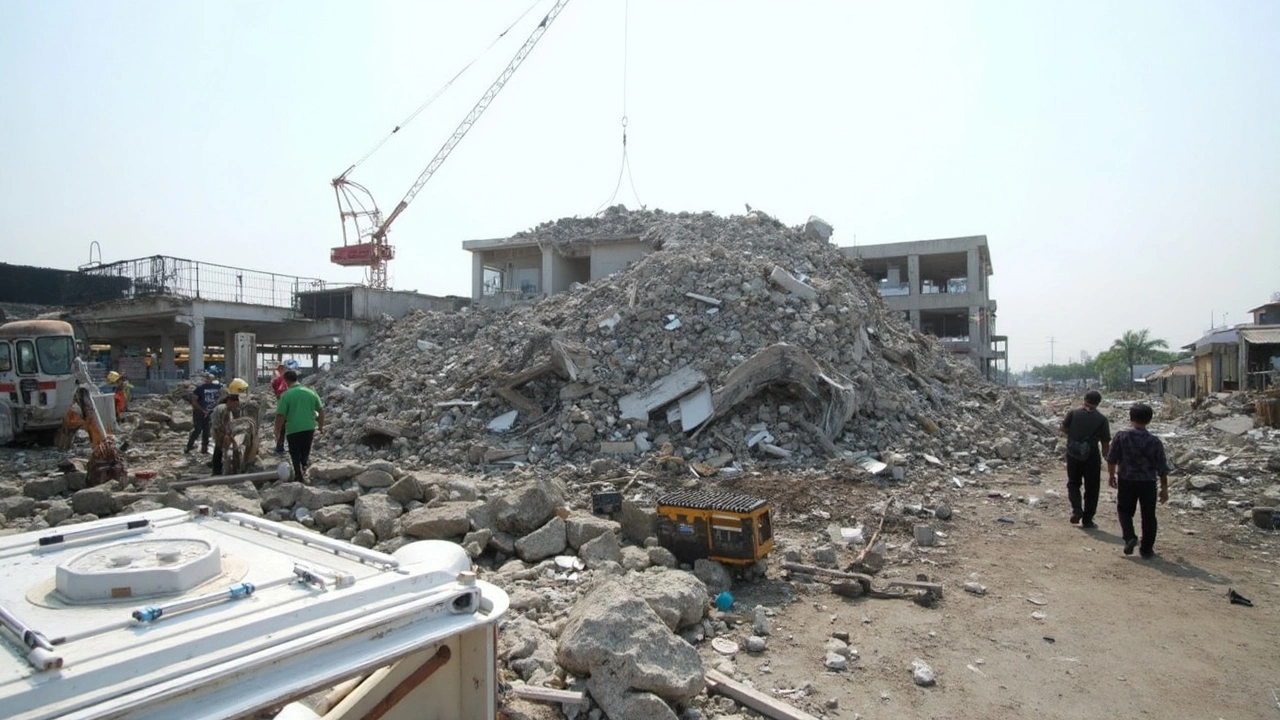Thailand Earthquake – What You Need to Know Right Now
Thailand has felt a series of tremors in recent weeks, and residents are looking for clear, up‑to‑date information. This tag page pulls together every new article, live update and expert comment about the shaking, so you don’t have to hunt across the site.
We break down the magnitude, the locations hit hardest, and what the government is doing to keep people safe. If you’re in the affected area, the details here can help you decide whether to stay put or move to a safer spot.
Current Situation and Recent Reports
According to the Thai Meteorological Department, the strongest quake recorded so far measured 5.6 on the Richter scale near Chiang Mai. Smaller aftershocks, ranging from 3.0 to 4.5, have followed throughout the day, especially in the northern provinces.
Local authorities have opened emergency shelters in Chiang Mai, Lampang and Mae Hong Son. Power outages are reported in a few villages, but the grid is being restored quickly. Roads remain open, though some mudslides have blocked minor routes near the mountains.
International seismologists say the activity is linked to the Anisakan fault line, a known source of moderate quakes in the region. While the shaking is uncomfortable, there are no signs of a major tsunami risk because Thailand’s coastline sits on a relatively stable plate.
Practical Safety Tips for Residents
If you feel a tremor, drop to the ground, take cover under a sturdy table or desk, and hold on until the shaking stops. Stay away from windows and heavy furniture that can tip over.
Keep an emergency kit ready: water, non‑perishable food, a flashlight, batteries, a first‑aid box and copies of important documents. A small radio can alert you to official instructions if the power goes out.
After the shaking, check your home for cracks in walls, broken glass and gas leaks. If you smell gas, turn off the main valve and call the utility company from a safe location.
Stay informed by following the Thai Meteorological Department’s social media feeds or local radio stations. They will issue alerts if aftershocks become strong enough to cause damage.
For travelers, ask hotel staff about the safest exits and whether the building meets earthquake‑resistant standards. Most modern hotels in Bangkok and Phuket have reinforced structures, but older guest houses may not.
Community support matters. Neighbors often help each other clear debris or share supplies. Join a local volunteer group if you can, or simply check on elderly residents who might need extra assistance.
We’ll keep this page updated as new reports arrive. Bookmark it, refresh often, and share the information with anyone who might be at risk. Knowing what’s happening and how to react can make a huge difference when the ground starts to move.
